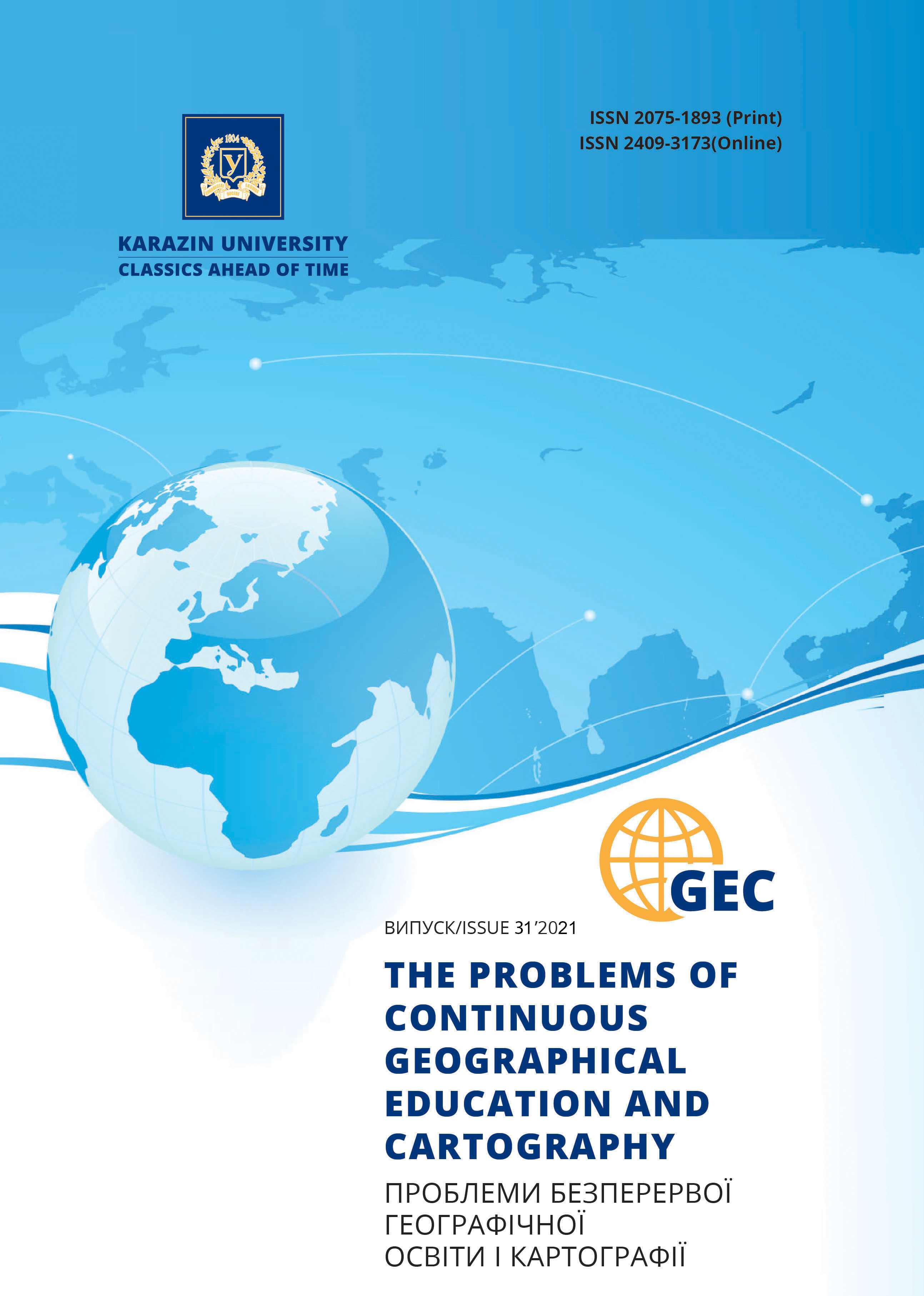Theoretical, applied and didactic aspects of research on the problem of sustainable development of regions and countries
Abstract
The purpose of the article is to consider the theoretical foundations, applied aspects, concepts and goals of sustainable development, as well as the study of factors and threats to the sustainable development of Pridnestrovie.
Main material. The authors conducted a brief analysis of the main stages of introducing the conceptual apparatus used to assess the degree of world stability as a whole, regions and countries.
Various approaches to defining the essence of sustainable development are considered. The author gives an extended interpretation of the "sustainable development" concept, which assumes that it is determined not only by environmental and economic aspects, but also has political, military, informational and other components.
Groups and particular examples of indicators that characterize the degree of sustainable development are given.
A list of factors that directly or indirectly affect the sustainability of countries and regions has been compiled and analyzed.
Hierarchical levels of research on sustainable development issues are highlighted. Emphasis is placed on the study of the features of ensuring sustainable development of regions.
Didactic aspects of studying the problems and mechanisms of ensuring sustainable development in educational institutions of different hierarchical levels are also considered.
The applied aspects reflected in the article include assessment and analysis of a number of indicators reflecting development sustainability of the Transnistrian region of post-Soviet Moldova.
Retrospective, modern and long-term threats to the sustainable development of the Transnistrian region are identified.
Conclusions and further research. Some tools (measures) to ensure long-term sustainable development in the context of globalization and high turbulence of the international environment are proposed.
Tools aimed at increasing the sustainability of the territorial units’ development of Pridnestrovie, the following are proposed:
- diversification and growth of industrialization of economic systems;
- preferential support for the development of high-tech material and energy-saving industries;
- differentiation minimization of financial and property stratification of the population;
- implementation of environmental standards and environmental management (ISO 14000) in industrial enterprises.
Downloads
References
Antonova, M.A. (2013). Teoretiko-metodologicheskie osnovy izuchenija ustojchivogo razvitija regionov [Theoretical and methodological foundations of the study of sustainable development of regions]. Society: politics, economics, 4, 113-119.
Arzhenovskij, I.V. (1997). Regional'nyj rynok: vosproizvodstvennyj [Regional market: reproduction]. Nizhnij Novgorod: Jekonomicheskaja kul'tura, 186.
Beljaeva, L.A. (2009). Uroven' i kachestvo zhizni. Problemy izmerenija i interpretacii [Level and quality of life. Problems of measurement and interpretation]. Sociological Studies, 1, 33–42.
Brutland, G.H. (1988). Nashe obshhee budushhee: Doklad Komissii OON po okruzhajushhej srede i razvitiju [Our common future. Report of the UN Commission on Environment and Development]. Moskva: Progress, 50.
Butenko, Ja.A. (2008). Povyshenie konkurentosposobnosti territorii kak faktor ustojchivogo razvitija strany [Improving the competitiveness of the territory as a factor in the sustainable development of the country]. Marketing in Russia and Abroad, 6, 75–87.
Kondrat'ev, N.D. (2002). Bol'shie cikly kon"junktury i teorija predvidenija [Big business cycles and foresight theory]. Moskva: Jekonomika, 768.
Majburov, I. (2004). Ustojchivoe razvitie kak kojevoljucionnyj process [Sustainable development as a co-evolutionary process]. Society and Economics, 4, 124-143.
Markov, Ju.G. (1994). Social'nye faktory jekologicheski ustojchivogo razvitija [Social factors of environmentally sustainable development]. Zakonomernosti social'nogo razvitija: orientiry i kriterii modelej budushhego. Sbornik nauchnyh trudov [Patterns of social development: guidelines and criteria for future models. Collection of scientific works]. Novosibirsk: SO RAN, II, 29-33.
Mingaleva, Zh.A., Gershanok, G.A. (2012). Ustojchivoe razvitie regiona: innovacii, jekonomicheskaja bezopasnost', konkurentosposobnost' [Sustainable development of the region: innovation, economic security, competitiveness]. Regional Economy, 3, 68–77.
Novochenko, D.V., Malova, D.V. (2013). Ustojchivoe razvitie regiona [Sustainable development of the region]. Bulletin of REU, 4, 34-41.
Podprugin, M.O. ( 2012). Ustojchivoe razvitie regiona: ponjatie, osnovnye podhody i faktory [Sustainable development of the region: concept, basic approaches and factors], Russian Entrepreneurship, 13, 24, 214-221.
Pchelincev, O.S., Ljubovnyj, V.Ja, Vojakina, A.B. (2000). Regulirovanie vosproizvodstvennogo potenciala territorii kak osnova regional'noj politiki [Regulation of the reproductive potential of the territory as the basis of regional policy]. Problems of Forecasting, 5, 62–68.
Tret'jakova, L.A. (2014). Konceptual'nye osnovy ustojchivogo regional'nogo razvitija v uslovijah globalizacii [Conceptual foundations of sustainable regional development in the context of globalization]. Regional Development Strategy, 18, 1-10.
Uskova, T.V., Kopasova, S.S. (2008). Ustojchivoe razvitie regiona: ot konceptual'nyh osnov – k prakticheskim rezul'tatam [Sustainable development of the region: from conceptual foundations to practical results]. Economic and Social Changes in the Region: Facts, Trends, Forecast, 43, 21-31.
Hajrullov, D.S., Eremeev, L.M. (2012). Problemy ustojchivosti social'no-jekonomicheskogo razvitija regiona [Problems of sustainability of the socio-economic development of the region]. Bulletin of Kazan State Agrarian University, 1, 73–76.
Capieva, O.K. (2010). Ustojchivoe razvitie regiona: teoreticheskie osnovy i model' [Sustainable development of the region: theoretical foundations and model]. Economic Problems of Regions and Industry Complexes, 14, 306-311.
Capieva, O.K. (2010). Jekonomicheskie problemy regionov i otraslevyh kompleksov [Economic problems of regions and industry complexes]. Problems of the Modern Economy, 2 (34), 46–49.
Shumpeter, J. (1982) Teorija jekonomicheskogo razvitija: Per. s nem. [Theory of Economic Development: Translation. from German]. Moskva: Progress, 159.
Konferencija OON po okruzhajushhej srede i razvitiju (1992) [United Nations Conference on Environment and Developmentю Availably at: http://www.prometeus.nsc.ru/koptyug/ideas/unrio92/005-023.ssi
Gvishiani, D.M.. Predely rosta - pervyy doklad Rimskomu Klubu [Limits of growth - the first report to the Club of Rome]. Availably at: http://old.ihst.ru/~biosphere/Mag_2/gvishiani.htm





